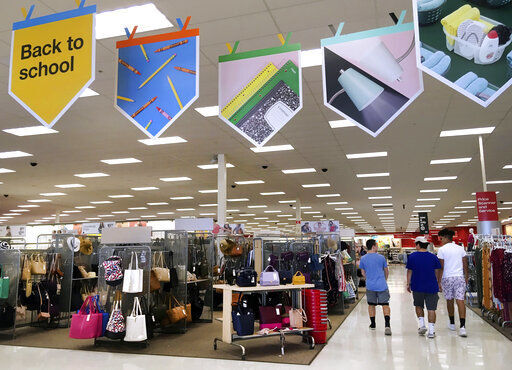NEW YORK — The 2022 back-to-school shopping season should enjoy strong sales increases from a year ago, fueled by a heavy demand for trendy fashion, though the growth won’t be as robust as last year when business was rebounding from pandemic-related virtual schooling.
Mastercard SpendingPulse, which tracks spending across all payment forms including cash, forecasts that back-to-school spending will be up 7.5% from July 14 through Sept. 5 compared with the year-ago period when sales rose 11%. For the 2020 back-to-school period, sales fell 0.8% as the pandemic wreaked havoc on schools’ reopening plans and back-to-school shopping.
Sales for the 2022 back-to-school season are expected to be 18.3% higher than the 2019 season, according to Mastercard SpendingPulse.
Inflation is helping to prop up back-to-school sales, and overall spending should be healthy despite surging prices on necessities like gas and food that are expected to put pressure on shoppers’ spending, according to Steve Sadove, senior adviser for Mastercard and former CEO and chairman of Saks Inc. Among the bright spots: department store sales for the back-to-school season should be up 13% compared to the year-ago period and up 27.3% from 2019. Clothing sales should be up 8.7% from a year ago and up 15.9% from three years ago.
“Back-to-school is the second biggest season for retailers and is often looked at as an early indicator of retail momentum ahead of the traditional holiday season,” said Sadove in a prepared statement. While he expects sales growth in all areas, retailers will need to find innovative ways to entice shoppers as spending on non-essentials potentially stretches thin as a result of increasing prices, Sadove said.
To make room for back-to-school items, retailers are marking down mounting inventory this summer, particularly in casual clothing and patio furniture that were in hot demand at the height of the pandemic. They’re now are falling out of favor as shoppers shift to pre-pandemic routines. Stores are also raising prices on other items as they try to offset surging costs in fuel and labor.


